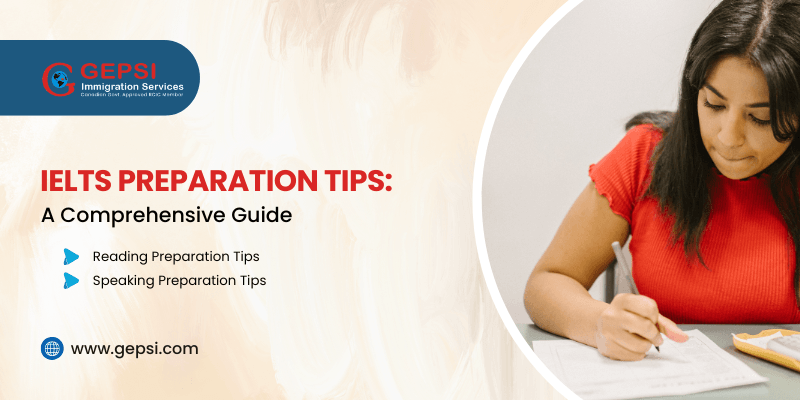IELTS Preparation Tips: A Comprehensive Guide

IELTS, also known as the International English Language Testing System, is a globally accepted English proficiency exam. It is often undertaken by people who wish to work or study in a native English-speaking country.
Preparing for all four modules of this exam requires confidence, strategy, and consistency. Even though undergoing professional IELTS training in Ahmedabad will help you develop a relevant skill set, knowing some tips is always a plus. Thus, this blog.
IELTS Preparation Tips
A. Reading Preparation Tips
Increase Reading Speed
Some tips to master the reading section are:
Develop a reading habit to increase your reading speed. Read journals, newspapers, or English course books. Reading power plays a crucial role since you are required to answer 40 questions in 60 minutes. So, don't let the reading laziness take over you!
Undergo Practice Tests
Practice makes a man perfect. It is as simple as that. One of the best ways to improve your reading time is to undergo practice tests. It will increase your ability to understand, skim, and scan texts without missing out on important information.
Develop Scanning and Skimming Techniques
The IELTS reading test isn't only about stories or paragraphs. Instead, it can be flowcharts, MCQs, paragraphs, tables, etc. So, take all your time before the final day to learn some skimming and scanning techniques.
To do so on the exam day, focus on subheadings, main headings, and keywords. Additionally, underline crucial information as you scan the text.
B. Speaking Preparation Tips
Speak Fluently and Naturally
Do not hurry to finish the sentences or words when practicing the speaking section. Speak naturally, stay calm, and confident. Avoid pausing too much and speaking in an anxious tone. Don't mum on ahhs and umms, they might end up giving a bad impression.
Record Yourself
One of the best ways to improve your speaking abilities is to record and listen to your speech. This will help you realise small mistakes and errors that can be rectified easily and promptly.
Expand Answers
Giving long answers and using idioms relevantly actually helps the interviewer gain confidence in your speech. For instance, if the interviewer questions - "Do you like reading?", you can reply by saying "Surely, flipping pages enhances my knowledge and keeps me calm." instead of simply saying yes or, I do.
C. Writing Preparation Tips
Plan Writing
Before you begin writing the answer, plan whether you will write in favor of or against the topic. Once decided, create a mindmap or index of your content and divide it into introduction, body, and conclusion.
Understand the Task
It is generally observed that the writing section for general and academic training consists of two questions. The first can describe a chart or be an informal letter, whereas the second is essay writing. Understanding both before attempting is essential to write well.
Stick to the Word Limit
When it comes to IELTS writing, paying attention to the word limit and grammar is essential. Generally, task 1 is 150 words and task 2 is 250 words. Please note that writing less can lead to scoring less.
D. Listening Preparation Tips
Watch Out for Traps
When undergoing the listening test, staying focused and calm is the key. It will help you avoid traps and sudden changes in answers that the speaker does to analyse your concentration levels.
Improve Listening Skills
One of the best ways to improve your English listening skills is to listen to English audiobooks, news, and podcasts with different accents. You can also practice for American, Australian, British, and Canadian English since they are the most common ones. Doing these things will help you crack the learning exam easily.
Take Practice Tests
Taking practice tests will help you understand effective time management and the types of traps that the examiner can use.
Wrapping Up
IELTS is a crucial test. Even though cracking it is no rocket science, it requires thorough preparation and hard work. Practising regularly with the right strategies will do the job for you.
Created with © systeme.io
